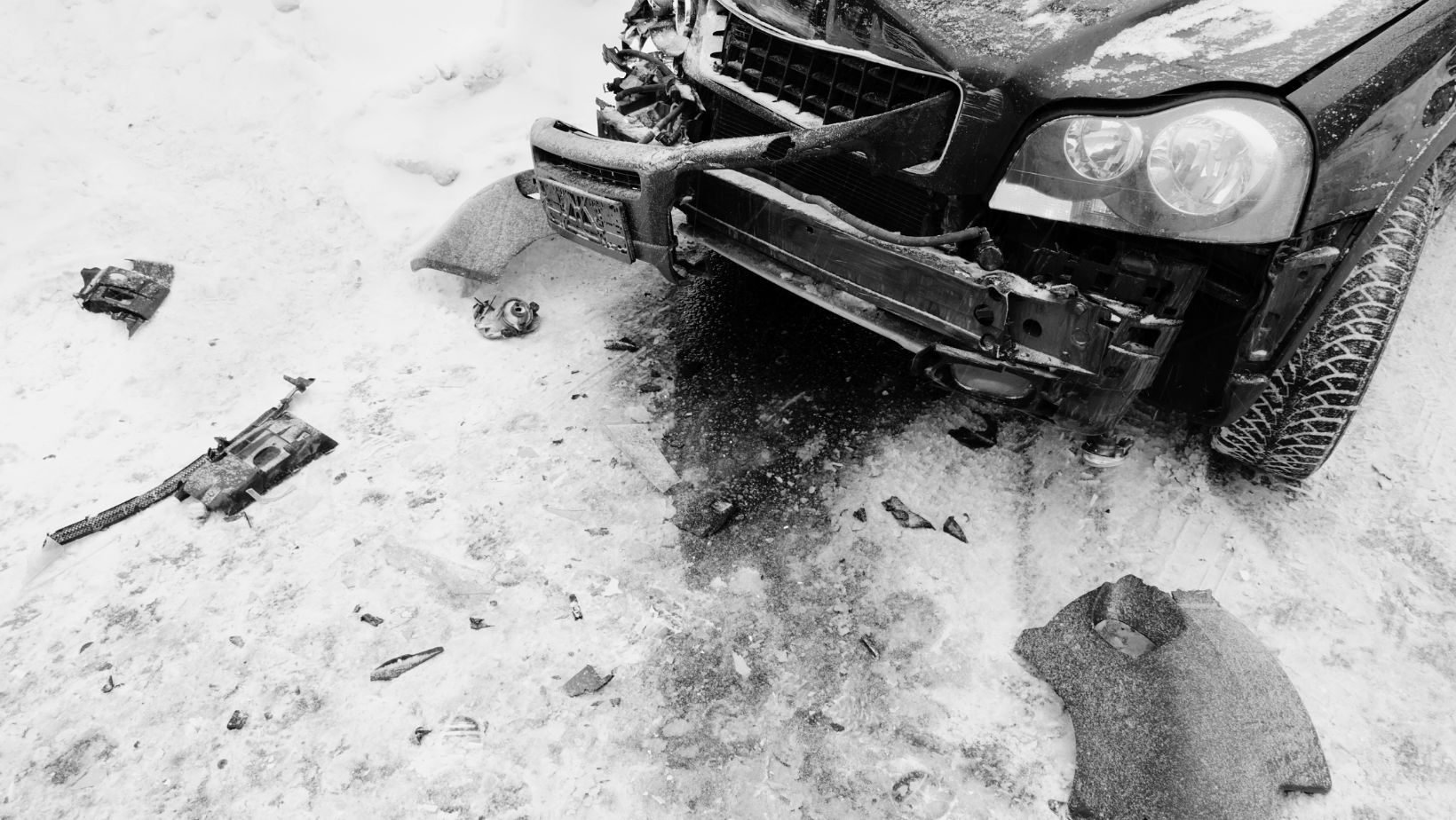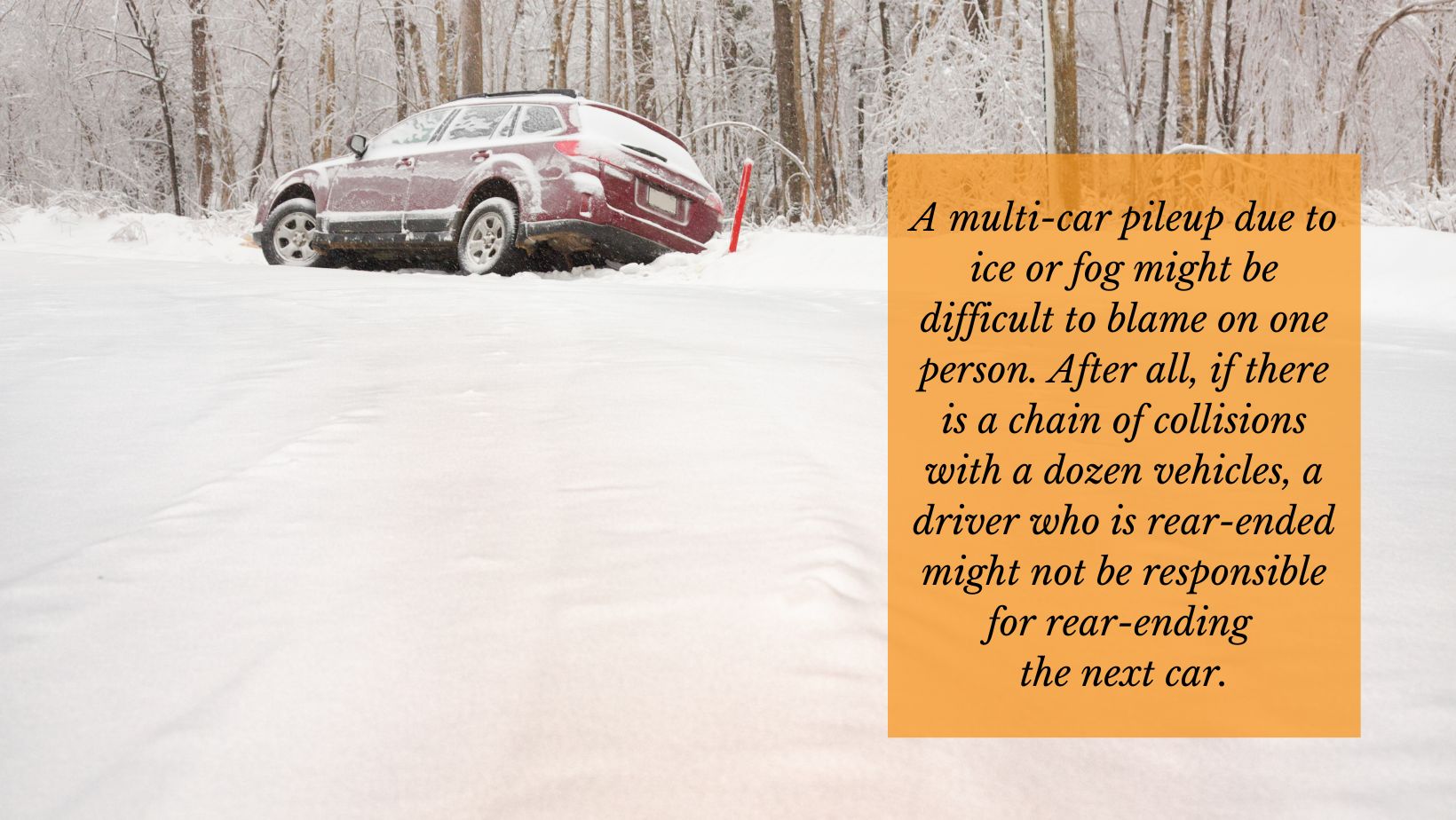Who is at Fault When Icy Road Conditions Cause an Accident?

If you were involved in an icy road accident, it’s easy to be confused about who is liable for your injuries. All vehicles have a hard time stopping on slick roads, but every driver has a responsibility to exercise caution in dangerous weather conditions. The person operating the car or truck that hits another vehicle will most likely be expected to pay for damages.
However, insurance companies may try using an “Act of God” defense to try to reduce the amount of damages they will cover. For example, if a driver slid on an icy road or couldn’t see due to heavy fog, they may claim that crashing into a victim’s car was unavoidable. While this might seem like a valid defense, there is almost always someone besides Mother Nature who is partially to blame. Experienced personal injury lawyers like Hipskind & McAninch can often prove negligence and get a victim the compensation they deserve.
The “Act of God” Defense in an Icy Road Accident
There are a lot of natural conditions that make car accidents more likely. Ice and snow in particular cause a lot of crashes, especially on the bridges connecting St. Louis and the Metro East. High winds and tornadoes are also common all over the Midwest and might cause semi-trucks to tip or cars to collide. A driver might also blame fog, swerving to miss a deer, or even the glare of the sun if they hit someone.
The legal term for an Act of God is force majeure. A force majeure car accident is possible, but rare. These incidents must be caused by natural forces without any human intervention, meaning they could not be reasonably anticipated or prevented.
So, if there were any signs that an accident was possible (such as falling sleet and below-freezing temperatures), or if something the driver did or didn’t do contributed to the crash occurring, it was not an Act of God.
Fighting an Act of God Defense
When it comes to countering an insurance company or defense attorney who is claiming an Act of God defense after an icy road accident, it is important to remember the above definition.
There are several things a driver should do to avoid an icy road accident:
- Drive more slowly on icy, snowy, or wet roads in winter
- Use headlights in low-visibility conditions like snow or fog
- Turn on hazard lights if going very slow or stopping
- Maintain a reasonable distance between cars
- Avoid sudden braking
- Do not drive distracted or impaired
A driver who is going too fast for conditions, or who follows another car too closely, can not use the weather as an excuse if they cause a car crash. Even driving during a blizzard or ice storm that was forecasted, or going down roads that are flooded, shows a failure to reasonably anticipate and prevent a bad outcome.
Likewise, ignoring signs warning of icing on bridges or steep grades can all help to prove a plaintiff’s case that the driver did not take reasonable care to avoid a collision.
Recently, we helped a client settle for a significant amount after being hit head-on by someone who was driving way too fast on an icy road. The driver should have slowed down to keep surrounding vehicles safe. The case became more complicated when it was discovered that the at-fault driver was on the clock, making a delivery for his employer. This led to the employer being held partially liable for the mistake too, even though the driver was using his personal vehicle.
When Mother Nature Truly Is to Blame
The things that really do make an auto accident unavoidable are rare. The occurrence must be something that a driver does not expect, and that happens so quickly, that there is nothing they can do to avoid it.
Tornadoes, for example, are usually part of a stormy weather system but can form within moments. They take unpredictable paths and can pass over a road, tossing cars around. If one car hits another in tornadic winds, it is unlikely the driver would be found liable for negligence.
A lightning strike is another unpredictable event. If a bolt hits the ground near a moving vehicle, the driver could potentially lose control and collide with someone.
A multi-car pileup due to ice or fog might be difficult to blame on one person. After all, if there is a chain of collisions with a dozen vehicles, a driver who is rear-ended might not be responsible for rear-ending the next car. However legal experts can determine if the first person in the chain stopped too suddenly or if the second person was following too closely. These facts will help determine the responsible party.

Crashes caused by medical emergencies are sometimes considered an Act of God. If a driver blacks out, or has a seizure, stroke, or heart attack, they may not be liable for a crash. However, if they should not have been driving due to the diagnosis of a medical problem, or if they had symptoms that indicated that an episode was possible, an Act of God defense may not apply.
Consult With a Personal Injury Attorney Experienced in Dealing with Icy Road Accidents
If you have been hurt in an accident that was not your fault, it’s crucial to speak to a personal injury attorney who will stand in your corner. Without legal help, an insurance company may try to use an Act of God excuse to say the icy road accident was not caused by their client. They may even offer a small settlement while maintaining that there was nothing the other driver could do.
Our personal injury attorneys will gather evidence to determine exactly what the conditions were like at the time of the crash. What did the weather reports say? Was it reasonable to expect the driver to know of the dangers on the road? Were there other accidents along the route that could have alerted the driver to slow down? All of this information can help provide proof that there was a human element to the accident and that it was not just an Act of God.
You deserve full compensation for your injuries. Contact Hipskind & McAninch for a review of your case.
Original post published on January 21, 2022.
Category:
Tags:
Act of God, auto accident, car accident fault, vehicle accident